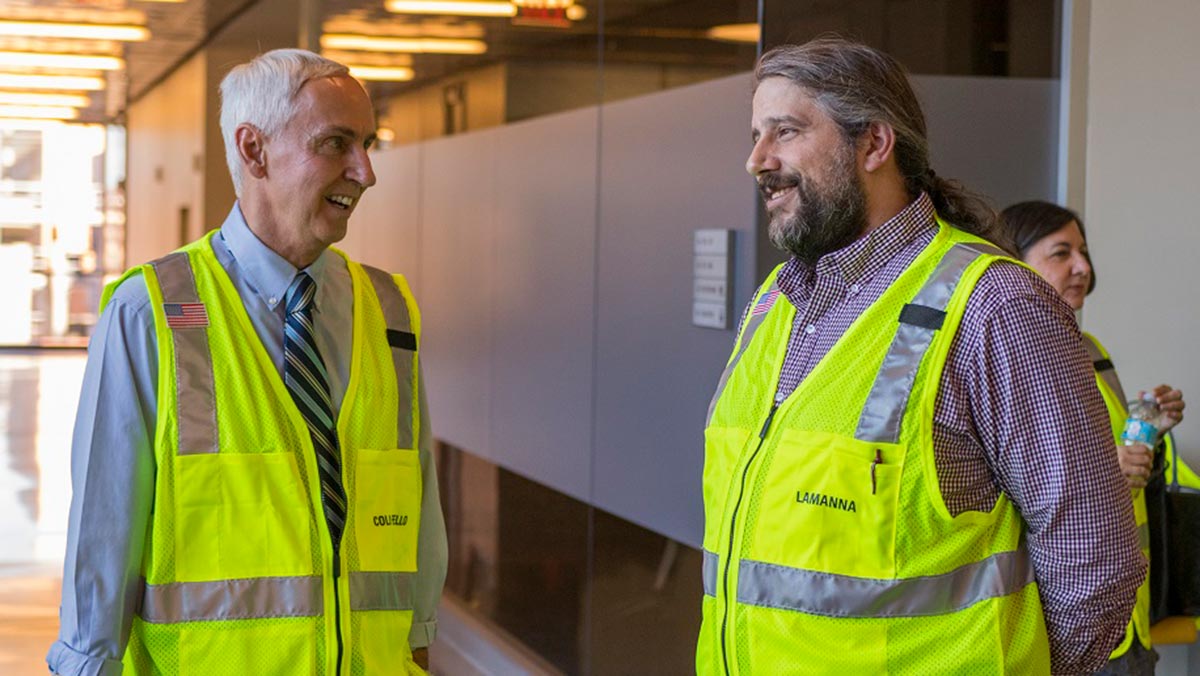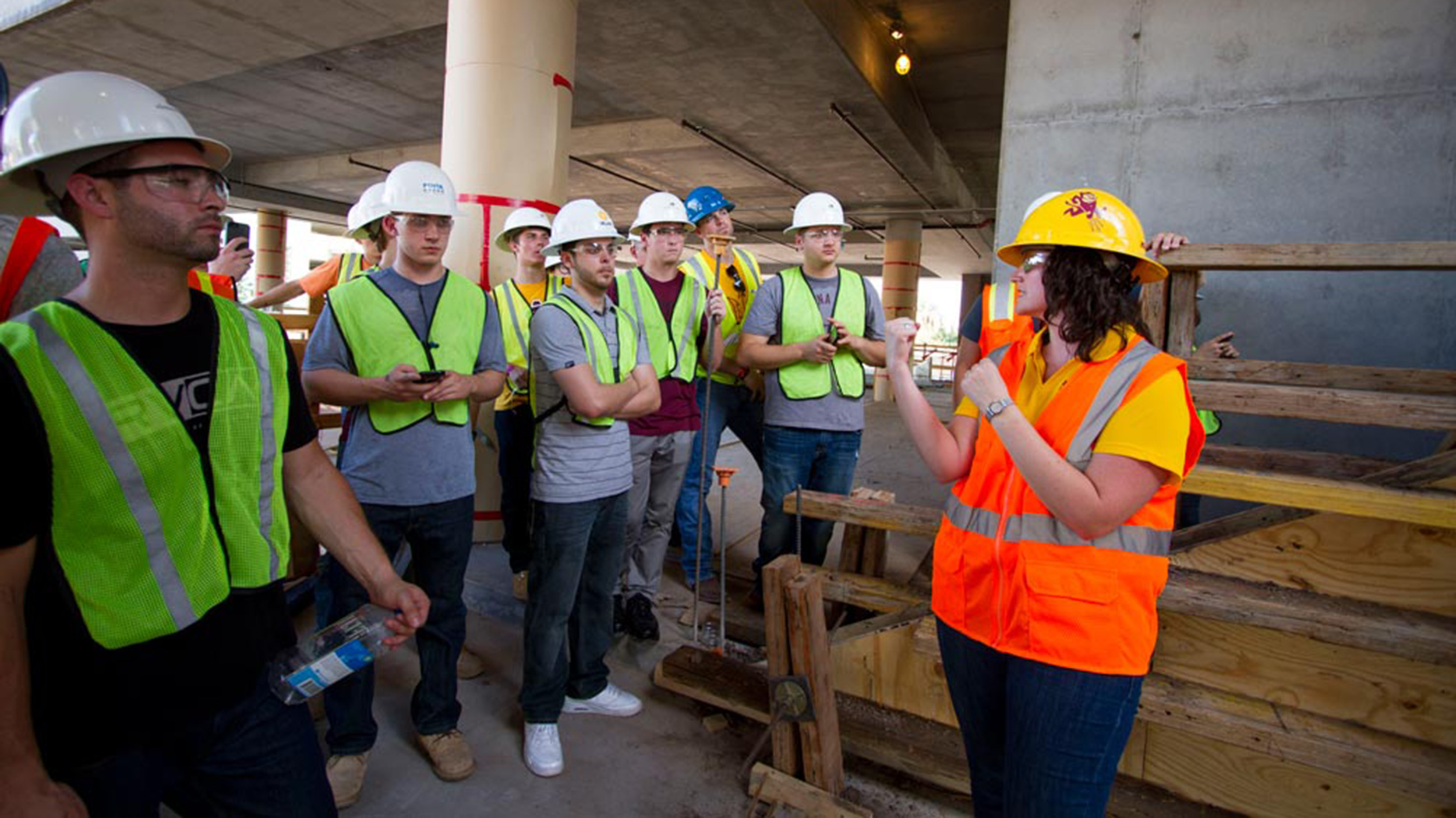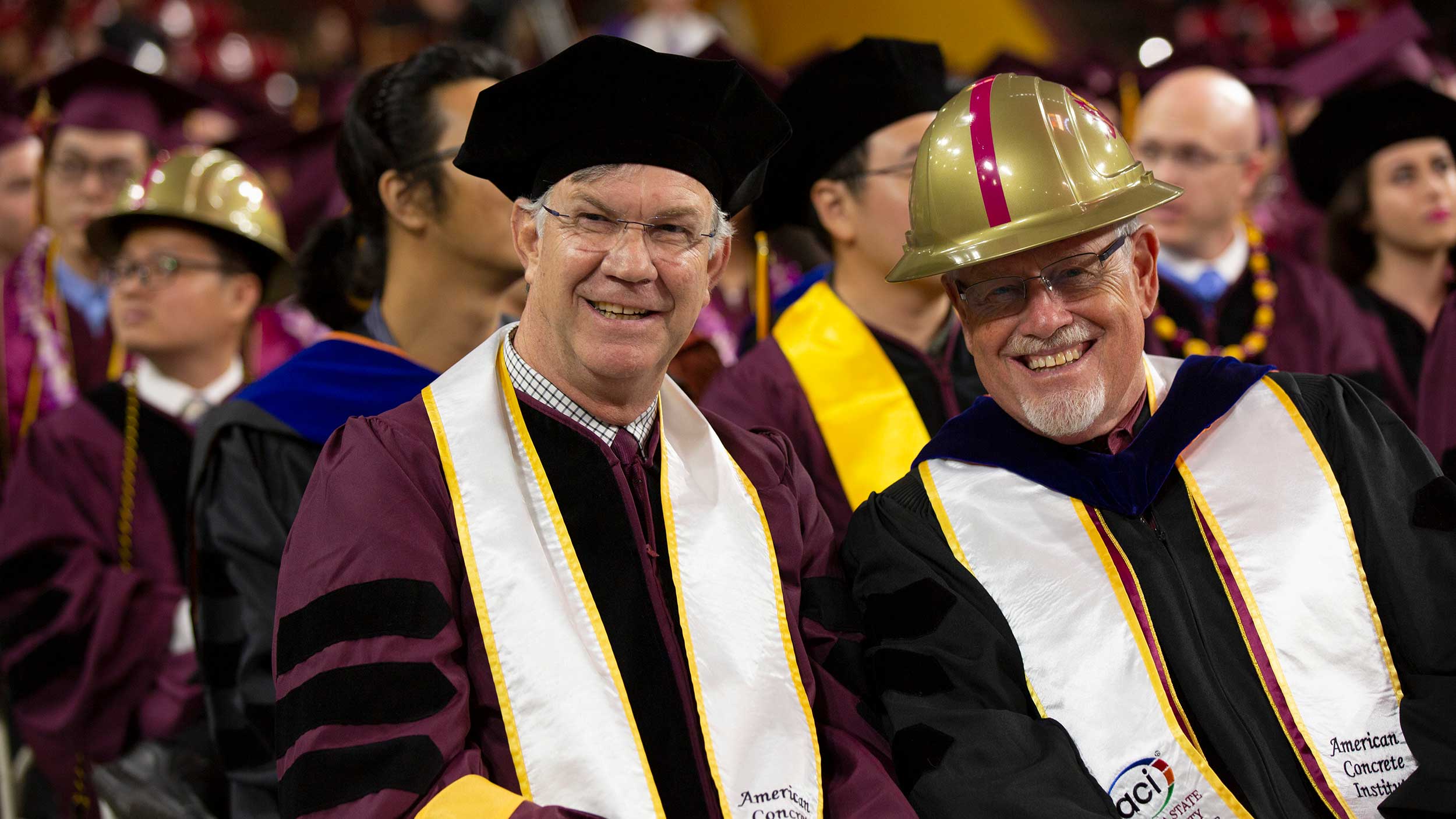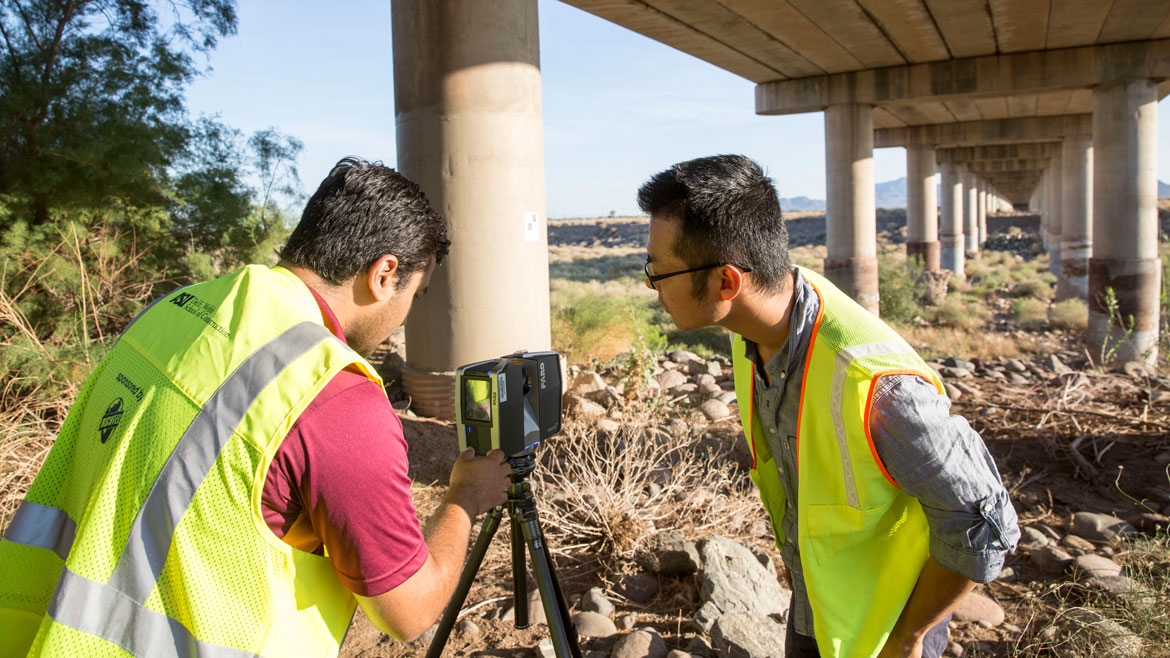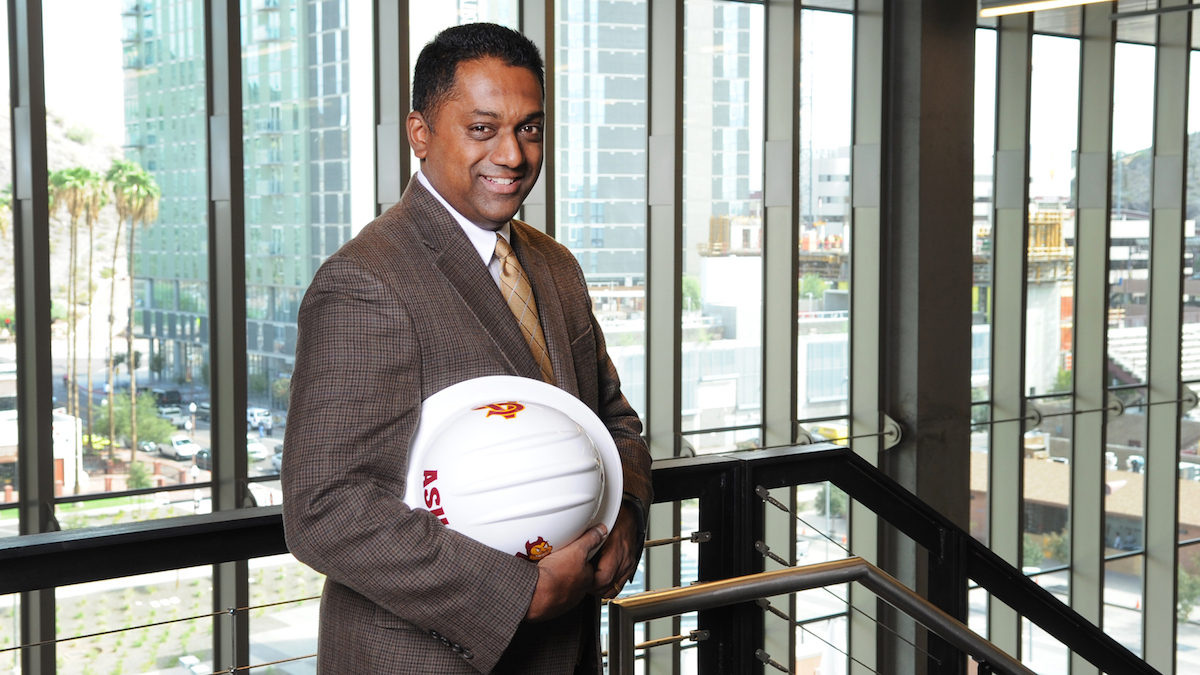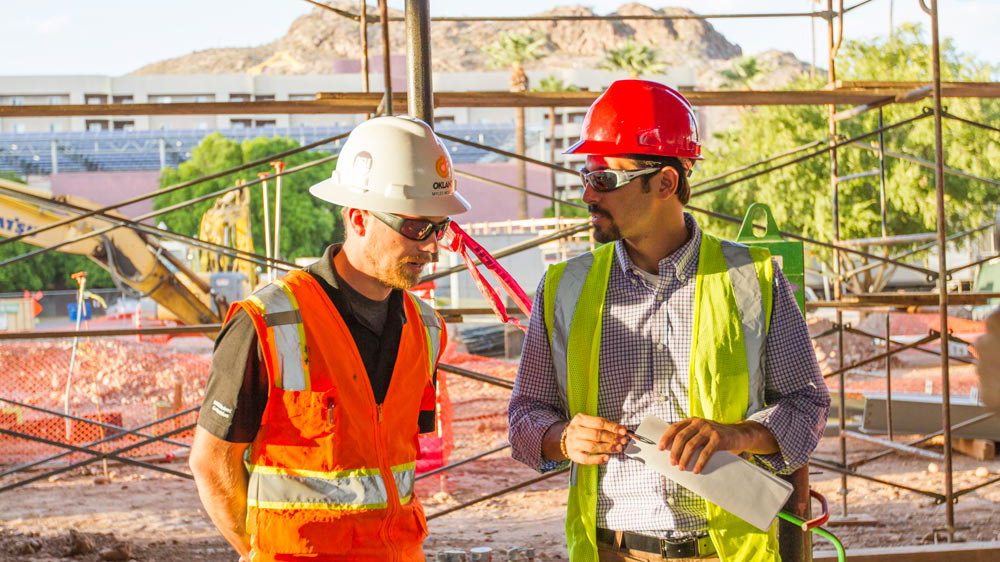Construction programs
Earn your hard hat with us!
DEWSC construction programs are cutting edge and prepare you for leadership
Our investment by industry, award-winning faculty, diversity of students and degree flexibility put the DEWSC as one of the top construction schools in the nation.
Because our construction programs are part of the Fulton Schools, students have degree flexibility. You can major in construction management or construction engineering, or in civil engineering with a focus on construction.
Construction Engineering
- (BSE)
- (Accelerated Master’s)
- (MSE)
Accelerated Master’s options available!
You can earn a bachelor plus master’s degree in less time with less financial commitment.
Construction management and technology (STEM degree program)
- (BS)
- (BS Online)
- (Accelerated Master’s)
- (MS)
- (MS Online)
Award-winning faculty with real-world experience
Our faculty members have earned teaching and research awards from the Construction Industry Institute (CII), the American Society of Civil Engineers (ASCE), and the Associated General Contractors (AGC). We have the highest number of construction faculty members of any construction program in the nation, all of whom have real-world construction experience.
What you get with your DEWSC education
- High level of investment by industry, including over $25 million in endowments
- High student diversity
- Degree flexibility – DEWSC is part of in the Ira A. Fulton Schools of Engineering, allowing students to major in construction management or construction engineering.
- Programs emphasize leadership, sustainability, innovative materials and life cycle analysis
- Learn in the state-of-the-art facilities of the College Avenue Commons
- International collaborations in China, Fiji, Norway, Singapore, India and growing
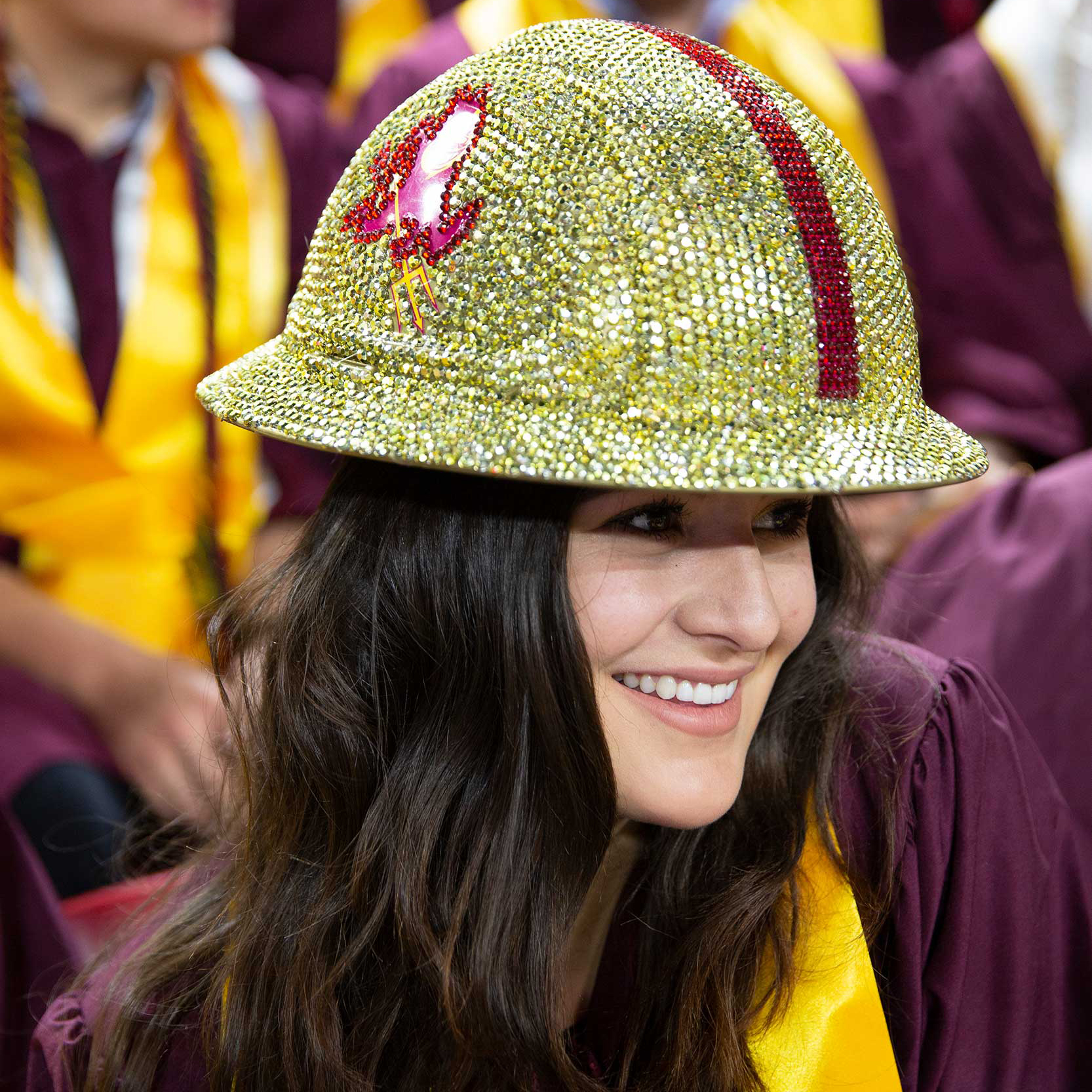
Let our experience benefit your career
Learn traditional and new construction specialties
Our outstanding construction programs is an excellent choice for a great career. You will work and collaborate with faculty with expertise in a broad spectrum of traditional as well as new specialties such as:
- Alternative project delivery methods
- Building information modeling (BIM)
- Front-end planning
- Asset management
- Advanced technology facility construction
- Concrete construction
- Trenchless construction
- Performance information procurement systems
- Productivity
- Safety and risk management
- Sustainable construction and development
Make career connections
In addition to being a part of a well-regarded degree program, you will benefit from our established ties to industry and a strong alumni network through internships and professional student organizations.
- Choose courses in different areas such as heavy, commercial, residential, or specialty (mechanical, electrical, HVAC, concrete) construction.
- Paid summer internships.
- Participate in active student clubs, organizations and construction competitions.
- Join networking and interview opportunities with industry leaders from leading construction companies.
Join a student organization or construction competition
Construction-focused Students Organizations and Teams Engineer Success
Student organizations and teams in the Del E. Webb School of Construction prepare students for the transition from classroom to construction site, and for many, provide a chance to hone their skills, make connections and have fun.
These organizations range from honors and professional associations, to minority and diversity groups, to teams designing solar-powered houses and trenchless technologies.
The benefits of student organizations and teams include leadership development, social opportunities and networking, community outreach, career growth and exposure to hands-on construction practice.
Building a Construction Network
The ASU chapters of the American Concrete Institute (ACI), the International Facilities Management Association (IFMA), and the National Association of Home Builders (NAHB) operate in conjunction with national and international professional societies helping students to expand their professional network and explore career opportunities.
The ASU chapter of ACI has a working relationship with the Arizona ACI professional chapter that brings construction professionals to the university to teach courses and guest lecture in classes and club meetings. Students in ACI, IMFA and NAHB work alongside their respective professional chapter to organize field tours, assist in construction-related competitions and provide funding for student scholarships and trips to national conferences.
Also linked to an international chapter, Sigma Lamda Chi is the Construction Honor Society at ASU. Sigma Lamda Chi recognizes outstanding students in the construction curricula by providing qualifying construction students opportunities to develop relationships with other students, industry and the local construction community.
Another group, the Construction Graduate Network (CGN), facilitates networking within the DEWSC graduate community. They aim to build lasting relationships between students and faculty through organized meetings and events, while providing a place for graduate students to present and promote their academic research and success stories.
Building a foundation for all to be successful
Other groups, such as Advancing Women in Construction (AWIC) and Construction in Indian Country (CIIC) focus their efforts specifically on underrepresented populations within the Construction School.
AWIC prides itself on a mentorship program that links female students with experienced members of the construction industry to ensure career development and professional growth during their academic years.
More than 70 women and several men in the greater Phoenix construction industry mentor AWIC students, providing them with a tailored inside look at life in the industry.
CIIC focuses its efforts on assisting the large American Indian population in Arizona by connecting native students with the Del E. Webb School of Construction. CIIC coordinates visits and tours for American Indian high school students, and is currently working alongside the ASU Chapter of Engineers Without Borders on projects that better the tribal communities of the Havasupai, Navajo and San Carlos Apache nations.
Hands-on Construction Competitions
Still other students elect to join student organizations for the joy of creating, inventing and solving problems with like-minded engineering students.
Dozens of students join a “Reno team” to take part in the Associated Schools of Construction’s Annual Student Competition in Reno, Nevada. In addition to competing in a 16-hour construction project simulation, students attend a career fair that includes more than 80 construction companies.
“Industry representatives look very seriously at these students,” said Tony Lamanna, program chair for the Del E. Webb School of Construction in the School of Sustainable Engineering and the Built Environment. “Participating in this competition is a real differentiator when students are interviewing. The industry understands what it takes and if you have competed, and won, it really sets you apart.”
In 2018, ASU had three Reno teams return home with two first place and one third place prizes.
In addition, the ASU-NASTT Student Chapter falls under the umbrella of the North American Society for Trenchless Technology (NASTT). These students promote the use of trenchless technologies for the construction and rehabilitation of underground infrastructure for public benefit.
ASU-NASTT members participate in various competitions, including the annual North American No-Dig Conference, where two construction engineering doctoral students brought home second place awards and scholarships in 2017.
In 2014, 23 other students elected to compete in the U.S. Department of Energy’s Solar Decathlon Competition. In this competition, students from ASU and the University of New Mexico joined forces to design and build an innovative, affordable, resilient and comfortable solar-powered house that produces as much energy as it consumes.
The structure named SHADE – Solar Homes Adapting for Desert – won fifth place in the architecture category and sixth in the engineering category of the Solar Decathlon competition. The project even attracted the attention of Bill Clinton, who toured SHADE and met the student designers during his visit to Arizona in April 2014.
What all of these student organizations have in common is that they provide a place for students to develop leadership, teamwork and networking skills.
“We find that employers are looking for future employees that have experiences in team interaction and the soft skills of working with people. Our student organizations provide that learning environment for our students,” said Lamanna.
